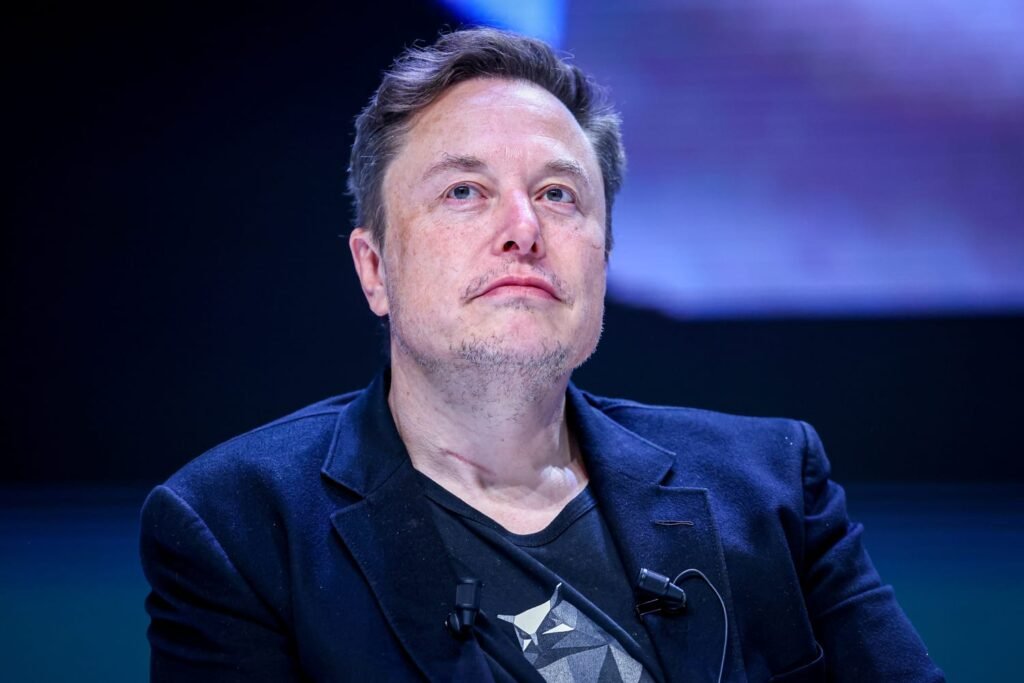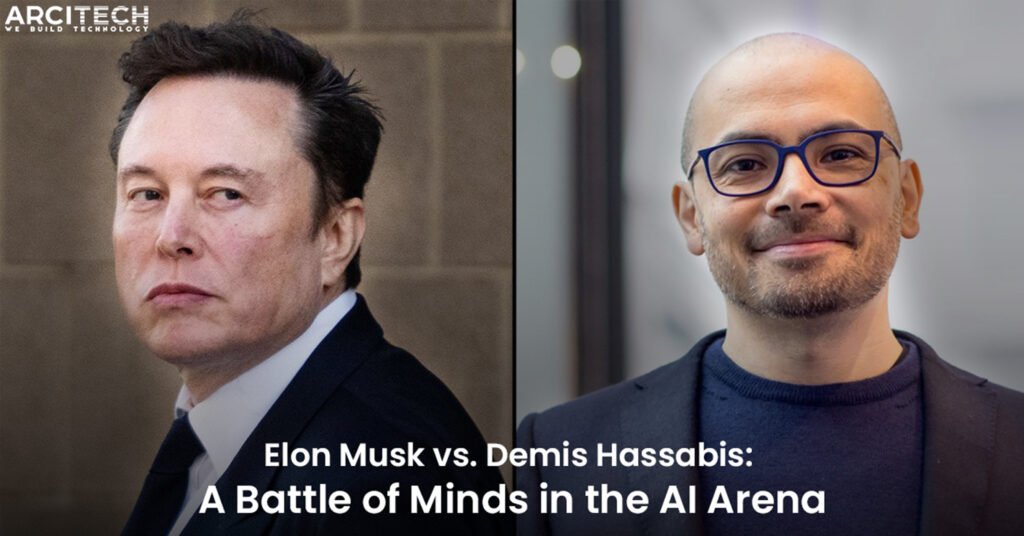The field of artificial intelligence (AI) has long been a melting pot of innovation, ambition, and occasional rivalry. Among the most compelling stories is the feud between two titans of the tech world: Elon Musk, the enigmatic entrepreneur, and Sir Demis Hassabis, co-founder of DeepMind and a Nobel Laureate. This rivalry isn’t just a clash of egos but a reflection of diverging philosophies on AI’s development, control, and future impact on humanity.
This article dives deep into the roots of their relationship, the turning points that strained their alliance, and what their rivalry signifies for the AI industry.
The Origin Story: Allies with a Shared Vision Elon Musk and Demis Hassabis, two towering figures in technology, first crossed paths in 20121. Their bond was born out of mutual admiration and a shared understanding of AI’s transformative potential. Musk, already a billionaire entrepreneur behind Tesla and SpaceX, was drawn to Hassabis’s extraordinary intellect and pioneering work in artificial intelligence.
Hassabis, a polymath with a background in neuroscience and chess, co-founded DeepMind in 2010 with a mission to create general-purpose AI. Early collaborations between Musk and Hassabis were reportedly characterized by stimulating conversations about the ethical and existential implications of AI. At this point, they seemed united in their hope that AI could be a force for good.
The Turning Point: DeepMind and the Google Acquisition The relationship began to sour in 2014 when Google acquired DeepMind for a staggering $500 million2. This was a pivotal moment, not just for DeepMind but for the broader AI industry. For Musk, the acquisition was a cause for concern. He believed that placing such a powerful AI project under the control of a profit-driven tech giant like Google could be dangerous.
Musk’s growing apprehension about AI’s potential misuse was no secret. Around the time of the DeepMind acquisition, Musk publicly stated that AI posed an existential risk to humanity if left unchecked3. Privately, he expressed disappointment that Hassabis had chosen to align with Google, a move Musk saw as prioritizing financial gain over ethical considerations.
Hassabis, on the other hand, viewed the acquisition as an opportunity to scale DeepMind’s resources and accelerate its research. Google’s backing provided the infrastructure and funding necessary to achieve breakthroughs in AI. For Hassabis, the partnership was a pragmatic decision to pursue ambitious goals.
The Birth of OpenAI: Musk Strikes Back Disillusioned by the trajectory of AI development under tech giants, Musk co-founded OpenAI in 20154. OpenAI was established as a nonprofit organization with a mission to ensure that artificial general intelligence (AGI) would benefit all of humanity. Musk’s vision for OpenAI was partly shaped by his growing distrust of centralized AI power.
OpenAI was Musk’s answer to DeepMind. It sought to create a counterbalance by developing AI in an open, transparent manner. The nonprofit status was a statement: OpenAI’s focus would be on safety and ethics, not profits.
However, as OpenAI grew, it became evident that maintaining its nonprofit model while competing with well-funded players like DeepMind and Google was a significant challenge. This eventually led OpenAI to transition into a “capped-profit” entity in 20195, a move that drew criticism, including from Musk himself, who had stepped away from active involvement in the organization.
Diverging Philosophies: Safety vs. Ambition At the heart of the Musk-Hassabis rivalry lies a fundamental disagreement over AI’s trajectory. Musk’s concerns about AI’s existential risks are well-documented. He has frequently warned about the dangers of creating a superintelligent AI that humans cannot control. Musk advocates for strict regulation and transparency, arguing that humanity must be cautious and deliberate in its approach to AGI.
Hassabis, while not dismissing the ethical concerns, has a more optimistic view. DeepMind’s mission to “solve intelligence and then use it to solve everything else” reflects Hassabis’s belief in AI as a tool for human progress. From breakthroughs in protein folding (through DeepMind’s AlphaFold6) to advancements in renewable energy, Hassabis sees AI as a means to tackle humanity’s greatest challenges.
This philosophical divide has fueled their rivalry, with Musk positioning himself as a watchdog against potential AI misuse and Hassabis focusing on pushing the boundaries of what AI can achieve.
Clash of Titans: Public Spats and Private Tensions The rivalry between Musk and Hassabis has played out both publicly and behind closed doors. In interviews, Musk has made veiled (and not-so-veiled) references to concerns about AI leaders prioritizing profit over safety. He has criticized tech giants like Google for their lack of transparency in AI development.

Hassabis, for his part, has remained relatively quiet about the feud. His focus has largely been on advancing DeepMind’s research and maintaining a low profile. However, those close to him have suggested that he views Musk’s alarmist stance as overly pessimistic and potentially counterproductive.
The Stakes for the AI Industry The Musk-Hassabis rivalry isn’t just about personal differences; it reflects broader tensions within the AI industry. As AI continues to advance at an unprecedented pace, questions about control, ethics, and accessibility have become increasingly urgent.
Centralization vs. Democratization:
- Musk’s concerns about centralization stem from his belief that monopolizing AI power increases the risk of misuse. OpenAI’s early focus on democratizing AI development was a direct response to this concern.
- Hassabis, while aware of these risks, believes that centralization under ethical oversight can accelerate innovation responsibly.
Speed vs. Caution:
- DeepMind’s rapid progress in AI research demonstrates Hassabis’s commitment to pushing the envelope. However, Musk argues that unchecked speed can lead to unintended consequences, urging a more cautious approach.
Regulation and Accountability:
- Musk has been a vocal advocate for AI regulation, often clashing with tech leaders who resist government oversight. Hassabis, while supportive of ethical frameworks, has been less vocal about external regulation, focusing instead on internal guidelines.
Implications for the Future The Musk-Hassabis rivalry highlights the dual-edged nature of AI: its immense potential for good and its equally significant risks. As AI systems become more integrated into society, the need for ethical governance and responsible innovation becomes paramount.
Advancements in AI:
- DeepMind’s contributions, such as AlphaGo7, AlphaFold, and AI applications in healthcare, have set benchmarks for what AI can achieve. These successes underscore Hassabis’s belief in AI as a force for solving complex problems.
Ethical Dilemmas:
- Musk’s warnings about AI’s existential risks have spurred discussions about the need for ethical safeguards. His advocacy has led to greater awareness of the potential dangers associated with AGI.
Industry Impact:
- The rivalry has inspired other AI researchers and organizations to consider their approach to AI development. Whether prioritizing ethics or pushing for breakthroughs, the industry continues to grapple with balancing these goals.
Conclusion: Two Paths to the Future The Musk-Hassabis rivalry is a microcosm of the broader debates shaping the future of AI. On one side is Elon Musk, the cautious visionary, advocating for safety and regulation to prevent AI from becoming a threat. On the other is Demis Hassabis, the optimistic innovator, focused on harnessing AI’s power to solve humanity’s greatest challenges.
While their approaches differ, their contributions have collectively propelled AI into the mainstream, fostering innovation and sparking critical conversations about its future. The question now is whether these two paths—caution and ambition—can coexist to create an AI-driven future that benefits all of humanity.
As this rivalry unfolds, the world watches, aware that the stakes couldn’t be higher. Whether through collaboration or competition, Musk and Hassabis are shaping not just the future of AI but the trajectory of human progress itself.
References
Related Wikipedia Articles
- Artificial Intelligence
- DeepMind
- OpenAI
- AlphaFold
- AlphaGo
- Artificial General Intelligence
- Machine Learning
- AI Safety
Footnotes
- Vance, A. (2015). “Elon Musk: Tesla, SpaceX, and the Quest for a Fantastic Future.” Ecco Press. ↩
- “Google buys UK artificial intelligence startup DeepMind for £400m.” The Guardian, January 27, 2014. ↩
- Musk, E. (2014). “Worth reading Superintelligence by Bostrom. We need to be super careful with AI. Potentially more dangerous than nukes.” Twitter. ↩
- “Introducing OpenAI.” OpenAI Blog, December 11, 2015. ↩
- “OpenAI LP.” OpenAI Blog, March 11, 2019. ↩
- Jumper, J., et al. (2021). “Highly accurate protein structure prediction with AlphaFold.” Nature, 596(7873), 583-589. ↩
- Silver, D., et al. (2016). “Mastering the game of Go with deep neural networks and tree search.” Nature, 529(7587), 484-489. ↩

